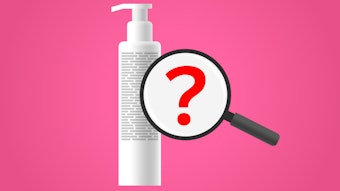The International Center for Technology Assessment (CTA) and a coalition of consumer, health, and environmental groups filed a formal legal petition this week with the U.S. Food and Drug Administration (FDA), calling on the agency to address the human health and environmental risks of untested and unlabeled nanomaterials in consumer products. According to a report from the group, this petition is the first U.S. legal action filed to address the potential human health and environmental risks of nanotechnology.
Nanotechnology, according to the press announcement, means the design or production of structures by controlling shape and size at the nanometer (nm) scale, or one billionth of a meter. Engineered nanoparticles are said to exhibit different fundamental chemical and physical properties than their bulk material counterparts. Several hundred self-identified consumer products composed of nanoparticles currently are widely available, including many sunscreen products and cosmetics, although estimates vary because no labeling is required.
Despite studies suggesting that the new properties of nanoparticles create unique human health and environmental risks, and the public’s growing exposure, no health and safety testing protocols for products with nanomaterials reportedly have been developed and no U.S. government regulations are currently in place to protect the public or the environment from these unassessed risks. According to the report, the FDA relies on safety testing guidelines that were developed for assessing risks of bulk scale materials; however, scientists universally agree that the properties and adverse effects of nanoparticles cannot be reliably predicted from the properties of the material in bulk form. The petition filed calls on the FDA to amend its regulations to require new nano-specific toxicity testing and mandatory product labeling.
"FDA's current regulatory stance is at loggerheads with the view of the scientific community about nanoparticles," said George Kimbrell, the lead CTA staff attorney on the legal petition, in a press announcement. "Scientists say that these nanomaterials may pose new health threats, but the FDA has failed to take sound scientific precautionary steps. The FDA needs to develop comprehensive regulations that account for the unique hazards that may be posed by nanomaterials in commerce."
The petition documents the scientific evidence of nanomaterial risks stemming from their unpredictable toxicity and seemingly unlimited mobility. For example, a 2004 study showed rapid brain damage in fish exposed to a type of manufactured nanoparticle (fullerenes or buckyballs) used in some cosmetics. Other studies are said to suggest that nanoparticles can trigger unpredictable inflammatory and immune responses, and have found that nanoparticles can penetrate cells and move within the body freely, even crossing the blood-brain barrier.
The preeminent UK Royal Society and the Royal Academy of Engineering concluded in 2004 that nanoparticles unique hazards warranted a moratorium on their release into the environment. Most recently, last month an aerosol spray bathroom cleaner marketed as a nano-product was recalled by German authorities after eighty people reported severe respiratory problems and six were admitted to the hospital with fluid in their lungs. While German authorities are still uncertain about what caused the health problems, the incidents alarm many scientists and regulators concerned about the urgent need for regulatory standards and labeling for nano-products.
The CTA legal petition also focuses on the FDA’s regulation of nano-sunscreens, sunscreens composed of engineered nanoparticles that, due to the nanoparticles’ fundamentally different properties, appear transparent or "cosmetically clear." But the engineered nanoparticles of zinc oxide and titanium dioxide used in nano-sunscreens raise red flags for scientists who have found that they can induce free radicals and cause DNA damage. It is uncertain how easily the particles can penetrate and circulate throughout the body.
Specifically, the legal petition requests:
-a formal FDA opinion clarifying the agencys stance regarding nano-products;
-the amendment of FDA regulations to include nanotechnology terminology and comprehensive nano-product regulations, including nano-specific toxicity testing and mandatory nano-product labeling;
-the amendment of sunscreen regulations to address nanoparticle sunscreen ingredients, including the requirement that all nano-sunscreens be considered new drug products;
-the declaration that nano-sunscreens are an imminent hazard to public health and must be recalled until the FDA’s nano-products regulations are implemented and nano-sunscreen manufacturers submit new drug applications; and
-agency consideration of human health and environmental impacts related to nano-product regulation, in accordance with the National Environmental Policy Act (NEPA).
The legal petition reportedly was filed in conjunction with the release of a comprehensive report on the dangers of nano-sunscreens and nano-cosmetics by Friends of the Earth (FOE). The petitioning organizations are CTA, FOE, Greenpeace International, The Action Group on Erosion, Technology, and Concentration (ETC Group), Clean Production Action, The Center for Environmental Health (CEH), Our Bodies Ourselves, and The Silicon Valley Toxics Coalition (SVTC).
- International Center for Technology Assessment (CTA)










